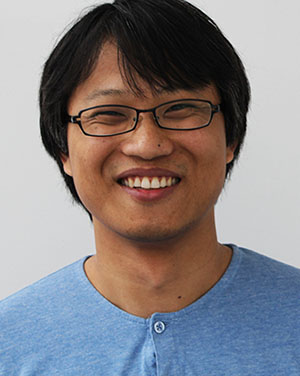Congratulations on your graduation PhD Du Ho Kang
Congratulations on your graduation
Du Ho Kang from South Korea came to KTH School of Information and Communication Technology in 2010 for doctoral studies. Now he has defended his PhD thesis 'Interference coordination for low-cost indoor wireless systems in shared spectrum'.

Where are you from and where did you study before coming to KTH?
– I am from South Korea and received my master degree at Seoul National University.
What is your topic and why did you choose it?
– My thesis theme is 'Interference coordination for low-cost indoor wireless systems in shared spectrum'. Nowadays we rely on smart devices such as tablets or smarthpones more and more. We usually consume most of wireless data at indoors, for example in buildings or homes. From a telecom-operator perspective, this makes operators deploy more indoor wireless access networks in order to keep providing the ever-increasing demand. However, denser wireless networks create much more stronger and unpredictable interference than traditional wireless networks. I studied how to manage such interference in future very dense in indoor wireless systems and whether or not applying advanced interference management schemes to give economic benefit to the operators.
Tell us something about your results.
– There are different existing wireless systems and ongoing future system concepts which employ different interference management schemes and related architectures. When different types of systems exist now, the most important result is that there is not the best system in terms of economic benefit. For instance, Wi-Fi will be cheapest solution as of today for relatively low to mid wireless service level. In future when several orders of magnitude faster wireless service is required, we certainly need more advanced interference management schemes and system design approaches which are not even supported by current a LTE system neither.
What will the future bring for your research topic?
– In the wireless research community, we start to talk about what comes after LTE (so-called ‘5G’). Certainly, an indoor wireless system is one of the hottest issue in 5G since most of wireless traffic originates from indoors. I believe interference management in the future dense indoor wireless systems will get more and more attention both from academia and industries.
What are your future plans?
– I would prefer to stay in Sweden and continue working with research in my area.
Here you can find the PhD thesis by Du Ho Kang .
A licentiate interview with Du Ho Kang from 2012.

